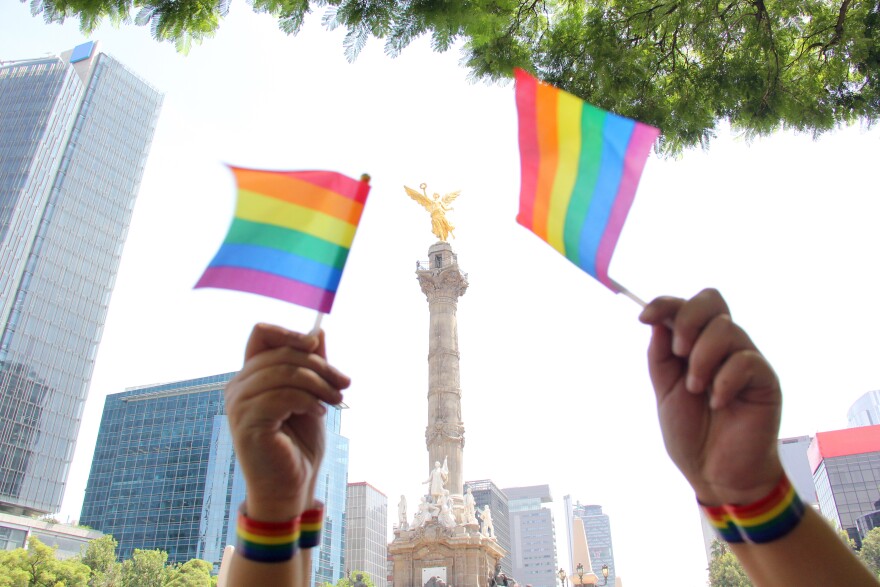During June, Pride celebrations across the country celebrate the LGBTQ+ community. Though Pride commemorates the Stonewall riots, which took place in New York, NY in 1969, the effects of the riots were felt throughout the world.
Alejandra Márquez, an assistant professor of Spanish at Michigan State University, researches gender and sexuality in Latin America. She is the author of a forthcoming book on queer representation in contemporary Mexico.
The first Pride march in Mexico City took place in 1979. Like the New York march, it was meant to commemorate the Stonewall riots and express support for the rights of LGBTQ+ people. Though different groups had different demands, Márquez said the Stonewall riots were an important proxy for LGBTQ+ Mexicans and were a significant moment in global queer culture.
Much like in the United States, the biggest Pride marches in Mexico take place in metropoles, with the lion’s share of the celebration concentrated in large cities. However, Márquez noted that rural areas and smaller cities have increasingly hosted their own Pride events.
The energy of Pride in Mexico City usually runs high, said Márquez, but she noted a greater commercialization of the event; “It tends to be very celebratory, which is great in some ways. I will say that in the last decade or so it has become very commercial. You know, it has a lot of corporate sponsorship and that has created some pushback from multiple groups.” Recent criticism of the presence of famous musical performers at Mexico City Pride has also emerged, claiming it detracts from the historical and ongoing ties between Pride and LGBTQ+ rights activism.
In her work, Márquez has observed a generational difference between LGBTQ+ Mexicans when it comes to Pride. Many of those who were activists in the 1970s and 80s were very conscious of the activist heritage of Pride. Those who began attending Pride events in the 2000s and 2010s, on the other hand, have largely known Pride as a commercialized event. Among younger generations, Márquez noted, there was more awareness of the social fight at the origins of Pride– and a desire to revalorize that aspect of the celebration, bringing awareness of concerns like trans femicide and anti-LGBTQ+ hate crimes back to the forefront.
Márquez commented on the Mexican media’s privileging of “affluent” or “less racialized Mexicans” in LGBTQ+ representation, as well as on the inclusion of transgender or non-binary identities at Mexico City Pride. She noted that the Marcha Lencha, equivalent to the Dyke March, which had been criticized for its exclusion of transgender women, is now more inclusive. Márquez also remarked on the diversity of Pride across Mexico’s cultures. She recalled seeing a float at Mexico City Pride some years ago which hosted muxes, a indigenous Oaxacan third gender typically referring to people assigned male at birth and who present in a feminine way. For Márquez, this affirmed the diversity of historical and cultural understandings of gender and sexuality.
Márquez stated that she felt Pride is still revolutionary: “So even though right now things feel very uncertain, I do see and have a lot of hope in the LGBTQ+ community and our allies. And I think that, that, you know, we're not going anywhere.”








